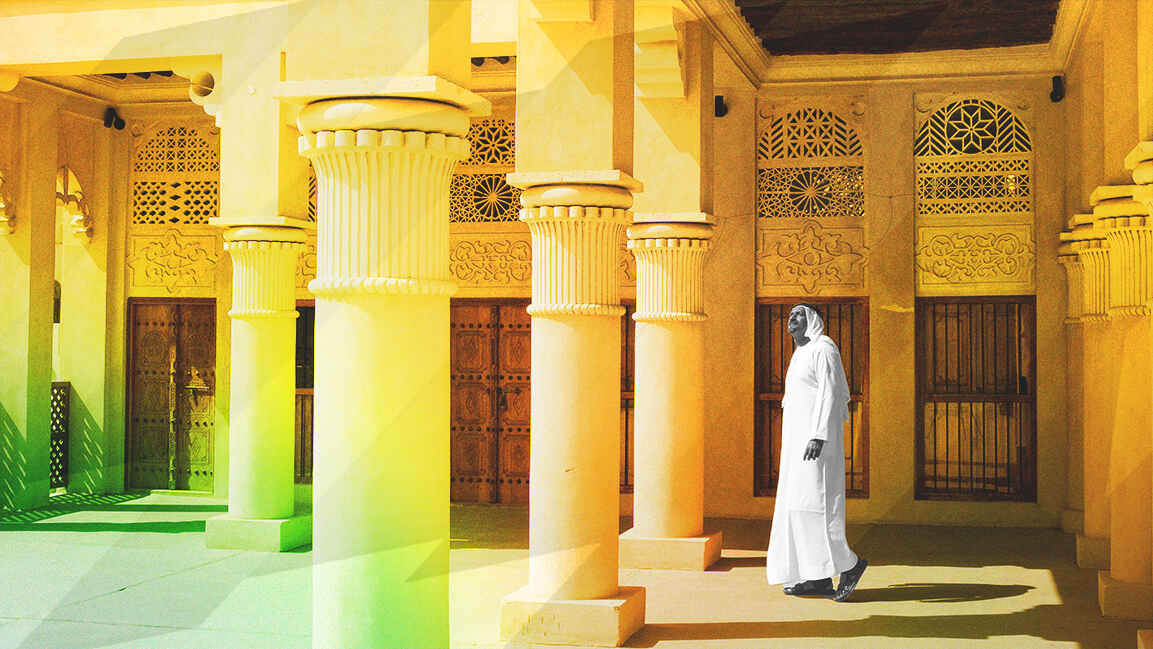- | 9:00 am
As AI accelerates in the Middle East, the hidden risks come into focus
As AI adoption grows at an annual rate of over 50%, companies face a critical juncture that necessitates ethical innovation at scale.

AI is transforming every aspect of society. Facial recognition systems speed passengers through airports. AI-driven threat detection secures critical infrastructure. Chatbots handle everything from visa inquiries to health diagnostics.
But with such rapid advancement comes a critical reckoning: What safeguards must exist to ensure this technology respects the region’s values, cultures, and rights?
The ethical deployment of AI security systems isn’t just about ticking compliance boxes; It’s about building culturally aware, human-centric, and future-proof solutions.
“The biggest challenge is finding the right balance between innovation and privacy,” says Anas Sitar, CEO of Evotech Global. “It’s easy for tech to move faster than ethics. It’s not just about how powerful the systems are, but how responsibly they’re built and used.”
INNOVATION WITHOUT EXPLOITATION
The ethical concerns facing AI adoption in the region mirror those of the rest of the world—bias, accountability, and data misuse—but are intensified by local nuances: rapid digitization, strong governmental influence, and a collectivist cultural mindset.
“Governments, businesses, and startups are moving fast to digitize services,” notes Levent Ergin, Chief Strategist for AI and ESG at Informatica. “But that also exposes recurring ethical tensions like bias, proportionality, lawful data use, and vendor governance. None of these are insurmountable but must be addressed from the outset.”
Hyther Nizam, President of Zoho Middle East and Africa, points to data handling as a common obstacle in building trust. “People want to know: are you sending my data to a third party? Are you hosting it offshore? We take a privacy-first approach. No ads, no selling data, no outsourcing to hyperscalers. That transparency builds adoption.”
Flagging another risk, the ethical drift, Ivan Milenkovic, VP of Cyber Risk Technology for EMEA at Qualys, says, “Technologies introduced for civic functions like public health or safety can be repurposed beyond their original intent. That’s why you need strict governance on the scope and use of AI infrastructure.”
A TRIO OF TENSIONS
The threat of algorithmic bias is especially pronounced in the Middle East, where societies are diverse and data quality is uneven.
“If your models are trained on narrow or non-representative data, you’re not just creating bad outcomes, you’re amplifying inequalities,” says Milenkovic.
That’s why clean, traceable, and culturally contextual data is becoming the backbone of AI strategy in the region. “You can’t build trustworthy AI on broken data,” Ergin adds. “You need AI to govern your data before you let AI make decisions.”
Accountability is the third pillar of concern. As AI systems grow more complex, it becomes harder to pinpoint blame when things go wrong. Milenkovic warns that without “clear lines of responsibility; ethical lapses can fall through the cracks.
COMMUNITY FIRST, SOFT-LAW ETHICS
What sets the region apart is how it blends international norms with local moral and religious values, creating an increasingly influential hybrid AI ethics model.
“A distinct framework is emerging,” says Milenkovic. “The UAE and Saudi Arabia have adopted global principles like fairness, transparency, accountability, but they apply them through the lens of Islamic ethics, emphasizing justice, dignity, and moral responsibility.”
Unlike the EU’s “hard-law” approach, the Gulf states favor policy guidance and soft law, enabling flexibility while maintaining ethical alignment. “It’s not less serious—it’s more agile,” adds Ergin. “Ethical AI here is operational, not theoretical.”
Sitar echoes this sentiment, spotlighting the Middle East’s collective approach to security. “The focus is on community safety, stability, and cultural values. That’s very different from the Western focus on individual freedom. This responsibility-first mindset gives the region’s AI ethics a unique identity and a lot of potential.”
ETHICAL AI IN ACTION
Examples of well-balanced AI deployments are already appearing across sectors. Ergin points to UAE Pass and UAE Verify: “They offer seamless services powered by biometrics, but with user consent, privacy controls, and built-in audit trails. It’s ethical by design.”
Sitar sees progress in transportation and border security with “airport AI systems across the UAE and Saudi Arabia being designed for efficiency and respecting data boundaries. They’re early in the journey, but the direction is positive.”
In the financial sector, Milenkovic highlights AI-powered cybersecurity platforms used by banks in the UAE and Qatar.“They protect consumers and infrastructure with minimal ethical risk, proving that responsible AI and robust security can co-exist.”
He also cites NEOM’s M3LD platform, a consent-based data ownership tool under development, as a “pioneering example of putting user control at the heart of a data-rich city.”
ETHICS AS A MARKET DIFFERENTIATOR
Aligning with ethical frameworks is becoming a strategic advantage for companies. Zoho, for example, reports the Middle East as its fastest-growing global market, with 50% annual growth.
“We’ve grown 20x in seven years,” says Nizam. “It’s because we act local, support compliance, offer on-premise options, and most importantly, build trust.”
The same applies to vendors providing secure infrastructure for AI.
“It’s not just about preventing breaches,” Milenkovic adds. “It’s about showing customers, regulators, and partners that your AI is accountable, respectful, and transparent.”
A TRUST-CENTRIC FUTURE
As the region’s AI maturity grows, so does its capacity to lead globally in ethical innovation. With foundations rooted in collective responsibility, religious principles, and community-first governance, the Middle East is charting a new path that redefines building trustworthy AI in a hyperconnected world.
“AI must empower, not surveil. It must clarify, not confuse,” Ergin says. “That’s what will make the Middle East’s digital transformation sustainable and inspiring for the rest of the world.”







































